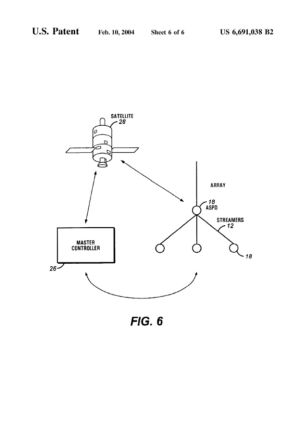In yet another reversal of the Federal Circuit Court of Appeals, the United States Supreme Court on June 22 decided in the case titled WesternGeco LLC v. Ion Geophysical Corp. that the provision of the patent statute that extends findings of patent infringement to the supply of American-made components for combination into products overseas allows the patentholder to recoup profits lost to an infringer even though the infringer's sales were made outside of the United States.

In a 7-2 decision that pitted strict constructionists against each other, Justice Thomas wrote that, notwithstanding the presumption that federal statutes "apply only within the jurisdiction of the United States," the "conduct relevant to the statutory focus in this case is domestic," reversing the judgment of and remanding the case to the Federal Circuit, even as Justice Gorsuch vigorously dissented.
The sophisticated technology at issue in WesternGeco relates to methods and systems for controlling the movement and positioning of a series of streamers towed in an array behind a ship sailing on the high seas. These streamers emit acoustic signals and detect the returning signals that reflect from the ocean floor so that collected data can be used to create a map of the subsurface geology, helping oil companies analyze underwater natural resource formations to find and exploit reserves of oil and gas beneath the ocean floor.
While there is no citation to any of the patents at issue* in the Supreme Court opinion, the Court decided that a jury award of over $12 million in royalties as well as a second award of over $93 million in lost profits can be supported by the US Patent Act, even though the Federal Circuit had disallowed the second award for extraterritorial lost profits.
The Statute: Section 271(f)(2) of the Patent Act provides: "Whoever without authority supplies or causes to be supplied in or from the United States any component of a patented invention that is especially made or es¬pecially adapted for use in the invention and not a staple article or commodity of commerce suitable for substantial noninfringing use, where such component is uncombined in whole or in part, knowing that such component is so made or adapted and intending that such component will be combined outside of the United States in a manner that would infringe the patent if such combination occurred within the United States, shall be liable as an infringer."
The Facts: The defendant, Ion, manufactured components of its complex surveying system in the United States and shipped them to its customers abroad to be assembled for use on the high seas to find oil deposits. Claim 1 of WesternGeco's '038 Patent covers a system comprising a towing vessel, an array of streamers, a positioning device, and a master controller. Presumably, the major components, other than the towing vessel, being American-made were shipped overseas by the defendant Ion to be assembled into the system claimed to be covered by claim 1.**
The Decision: Justice Thomas and Justice Gorsuch agreed that the jury award for royalties based on Ion's exporting of the components for completion of the infringing system overseas was correct and supported by Section 271(f)(2) in conjunction with Section 284, the damages section of the Patent Act. But as Mr. Justice Gorsuch stated in his dissent: "By failing to heed the plain text of the Patent Act and the lessons of our precedents, the Court ends up assuming that patent damages run (literally) to the ends of the earth. It allows U. S. patent owners to extend their patent monopolies far beyond anything Congress has authorized and shields them from foreign competition U. S. patents were never meant to reach."
Given the current bent of the Supreme Court in strengthening the rights of enforcing US patents, holders of patents in the United States may be well served to keep a close eye on the competition, whether at home or abroad, whether landlubbers, sailors on the high seas, or even those who might be hiding up in that satellite 28 in Fig. 6 above.
*In May 2018, the Federal Circuit upheld a decision of the Patent Trial and Appeals Board that found three of the four WesternGeco patents invalid, leaving only the '038 Patent (whose Fig. 6 is replicated above) currently in the litigation on remand. The Supreme Court opinion does not mention the invalidity findings.
** The '038 Patent also has method claims, such as claim 26 that covers the three steps of towing, attaching a streamer, and issuing commands, but all of those steps, being undertaken on the high seas and outside of the jurisdiction of the United States, presumably do not provide a basis for patent infringement, yet.
The content of this article is intended to provide a general guide to the subject matter. Specialist advice should be sought about your specific circumstances.



